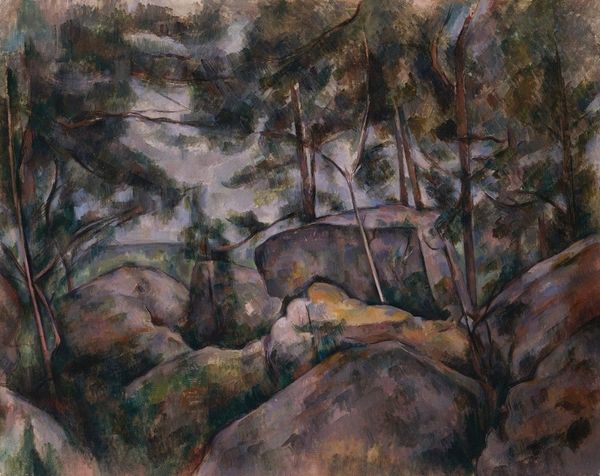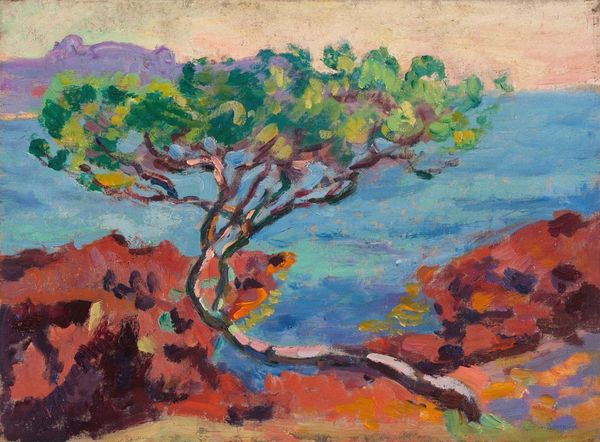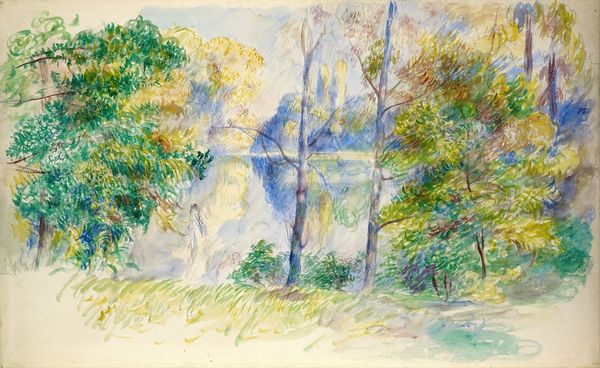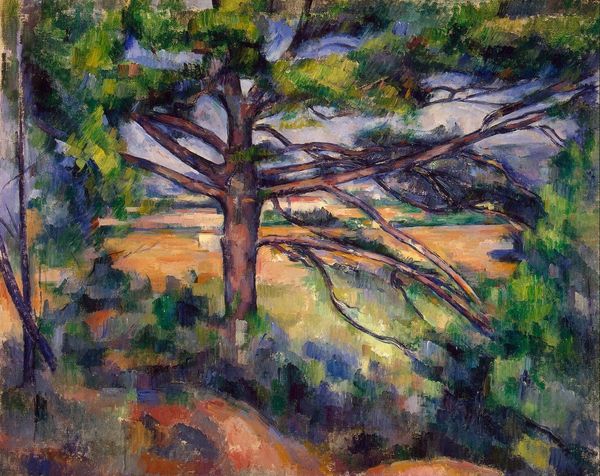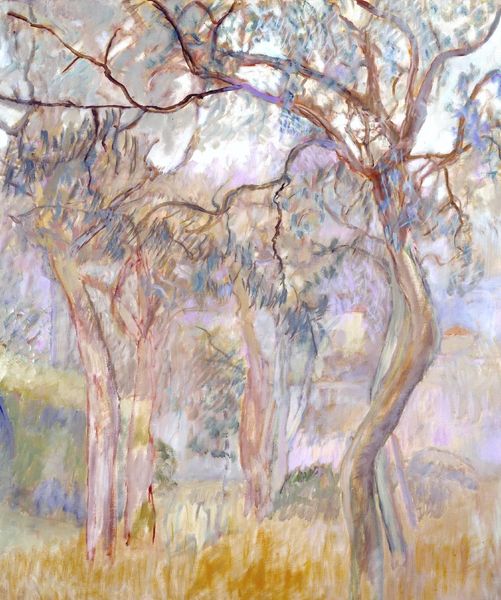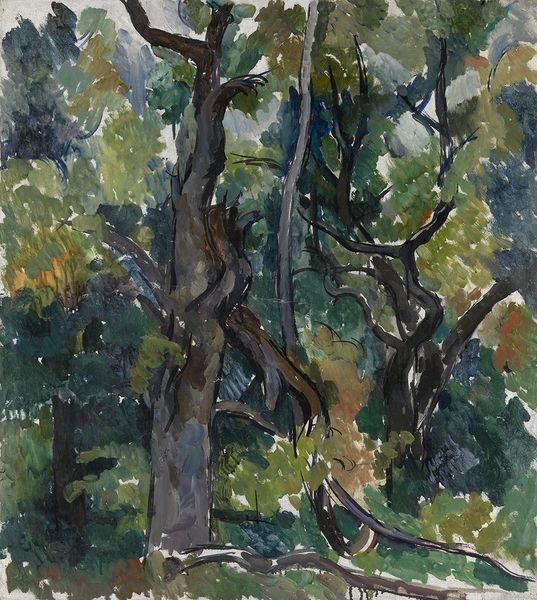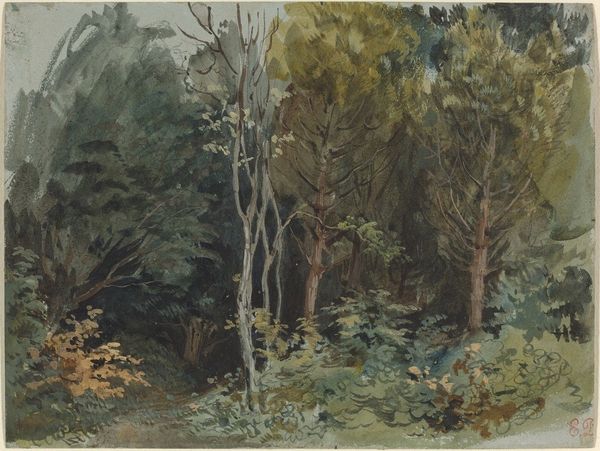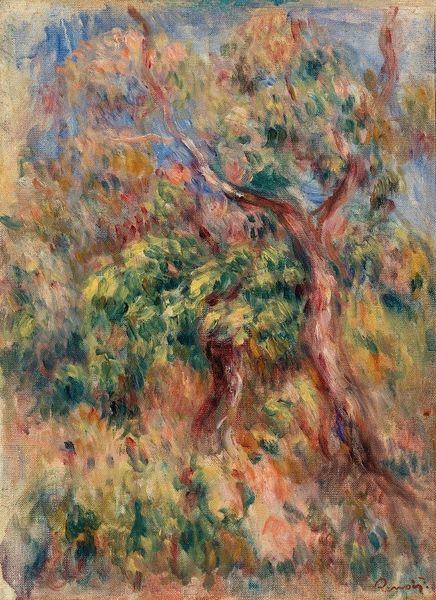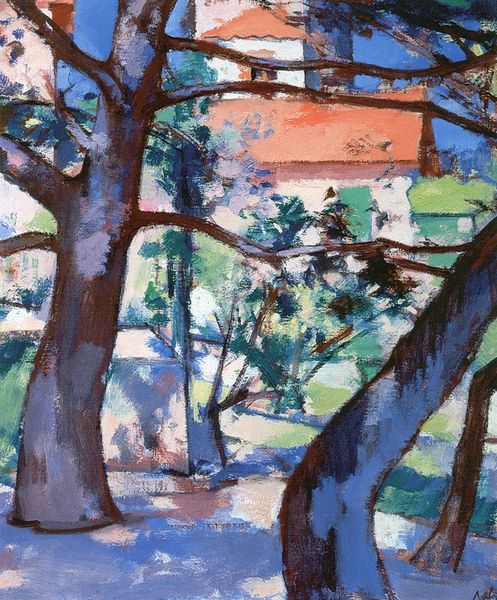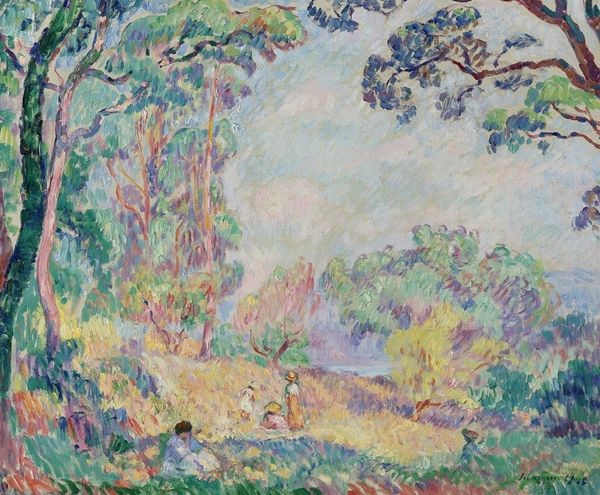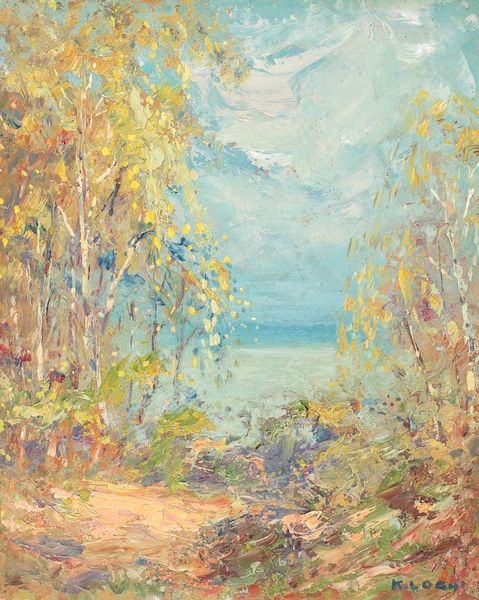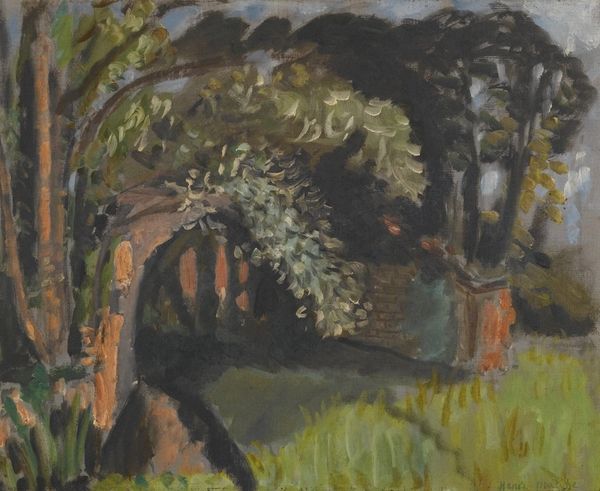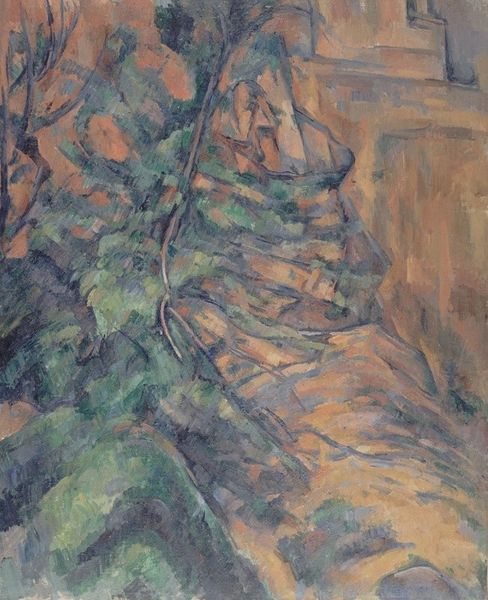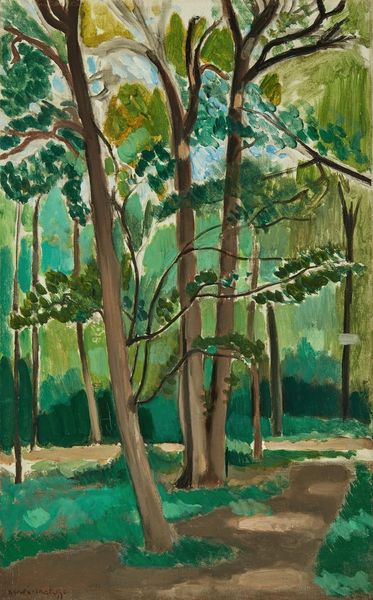
painting, oil-paint
#
painting
#
oil-paint
#
landscape
#
forest
#
intimism
#
post-impressionism
Copyright: Public Domain: Artvee
Paul Cézanne, born in Aix-en-Provence, painted "Sous-Bois", or "Undergrowth", with oil on canvas, sometime near the end of the 19th century. Cézanne, who inherited wealth, was an unlikely revolutionary of modern art. He took the impressionist's interest in depicting nature and light, yet he abandoned their soft edges for something altogether different. Here, we see the underbelly of the forest, a place often associated with the feminine unknown, the place of witches and spirits, and childhood imaginings. This space, traditionally hidden, becomes the subject. Cézanne's deliberate brushstrokes break down forms into abstract planes of color, which when viewed together, create depth and volume. This challenges the traditional artistic conventions of the time. Cézanne once said that he wanted to "treat nature by the cylinder, the sphere, the cone." He sought to capture the underlying geometric structure of the natural world. Cézanne's innovative approach paved the way for future generations of artists. His work urges us to contemplate the relationship between perception, representation, and the structures that inform both.
Comments
No comments
Be the first to comment and join the conversation on the ultimate creative platform.
